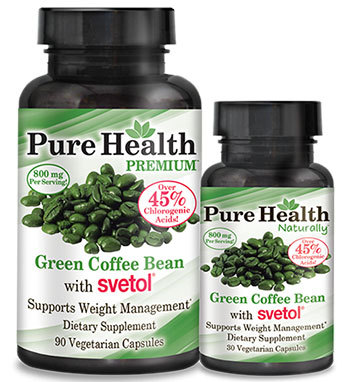Lindsay Duncan, a Texas businessman who capitalized on the green coffee weight loss fad, has reached a settlement with the Federal Trade Commission, agreeing that he and his companies will pay $9 million for consumer redress.
The FTC similarly fined Austin, Texas-based Applied Food Sciences $3.5 million last September, after the company issued and marketed a study that made unsubstantiated and untested claims about the efficacy of green coffee extract as a weight loss supplement.
Representing two companies he controls, Pure Health LLC and Genesis Today, Duncan made appearances on the Dr. Oz Show and The View, promoting the bogus study, the FTC says, adding that the companies designed marketing plans around the television appearances.
“The FTC charged that Duncan and his companies, Pure Health LLC and Genesis Today, Inc., deceptively claimed that the supplement could cause consumers to lose 17 pounds and 16 percent of their body fat in just 12 weeks without diet or exercise, and that the claim was backed up by a clinical study,” the FTC said in an announcement of the settlement yesterday. “Shortly after Duncan agreed to appear on Dr. Oz but before the show aired, he began selling the extract and tailored a marketing campaign around his appearance on the show to capitalize on the ‘Oz effect’ – a phenomenon in which discussion of a product on the program causes an increase in consumer demand.”
The FTC says Duncan and his company made “tens of millions” of dollars worth of their extract, working to make it available through mainstream retailers like Amazon.com and Wal-Mart surrounding the airing of the television programs.
As of this writing, Pure Health LLC, also based in Austin, was still offering green coffee extract as a product that “supports weight management” and is a “dietary supplement,” according to labeling on the bottle. On the website, the product description says it, “may support weight management,” (italics are ours), with the following caveat: “These statements have not been evaluated by the Food and Drug Administration.”
The FTC settlement does not bar Duncan or his companies from marketing further weight-loss supplemental products, but it does come with some stipulations.
“The proposed stipulated court order requires the defendants to substantiate any future weight-loss claims with at least two well-controlled human clinical tests,” the FTC announced. “Any claims the defendants make about the health benefits and efficacy of any dietary supplement or drug cannot be misleading and must be substantiated by competent and reliable scientific evidence.”








Comment